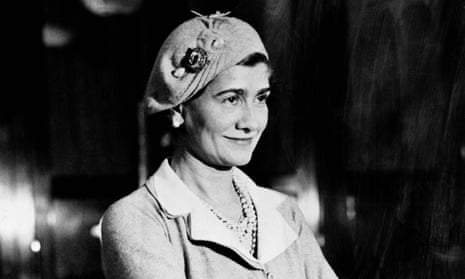A major retrospective of Coco Chanel has revealed that the fashion designer was a documented member of the French resistance. The previously unseen documents will be displayed, along with contradictory evidence suggesting that she also worked as a Nazi agent.
The documents related to Chanel’s activities in wartime Paris bring a serious tone to what is expected to be the most glamorous exhibition of the year. The exhibition, titled Gabrielle Chanel: Fashion Manifesto, will open at the V&A in London on September 16 and will feature over 50 tweed suits, including a bubblegum pink set owned by Lauren Bacall.
“We couldn’t create a show about Chanel without addressing her wartime record,” said curator Oriole Cullen. The exhibition, which originated at the Palais Galliera in Paris in 2020, has been expanded with a new curation that explores Chanel’s connections with Britain and her activities during the war.
Previously unseen documents highlight the name “Gabrielle AKA Coco Chanel” on a list of 400,000 individuals whose involvement in the resistance is supported by official records. “We have confirmation from the French government, including a document from 1957, which confirms her active participation in the resistance,” said Cullen.
The museum will also present compelling evidence of Chanel’s collaboration with the Germans in occupied Paris, including transcripts of postwar interrogations of three Nazi officials who independently identify her as a trusted source.
“The new evidence doesn’t absolve her. It only adds complexity to the picture. All we can say is that she was involved with both sides,” said Cullen.
In contrast to the recent Dior exhibition at the museum, which chronicled the fashion house’s existence beyond its founder’s lifetime, the Chanel exhibition concludes with her death in 1971. The exhibition is personal and, due to Chanel’s controversial life, inherently political.
Cullen attributes Chanel’s upbringing in a French convent after the death of her mother and the disappearance of her father as factors that shaped her character and inclination towards self-protection, making her instinctively right-wing. The curator described the designer as ”above all, a survivor, always seeking opportunities to progress in life.”
During the early 1940s, Chanel had a relationship with Nazi officer Baron Hans Günther von Dincklage, which she used to secure the release of her nephew, André Palasse, from a German prisoner-of-war camp.
“We didn’t want to ignore her wartime record, but first and foremost, this is a fashion exhibition,” said Cullen.
Fragile evening pieces that are typically kept hidden in the museum’s archive will be on display, along with the groundbreaking “evening trousers” that caused a scandal in French society when Chanel introduced them. One section of the exhibition will focus on Chanel’s iconic No 5 perfume, which became a signature scent worn by prominent figures such as Marilyn Monroe and Andy Warhol.
Many of the 100 additional pieces included in the exhibition since its previous showing at…
2023-09-09 00:00:15
Post from www.theguardian.com















